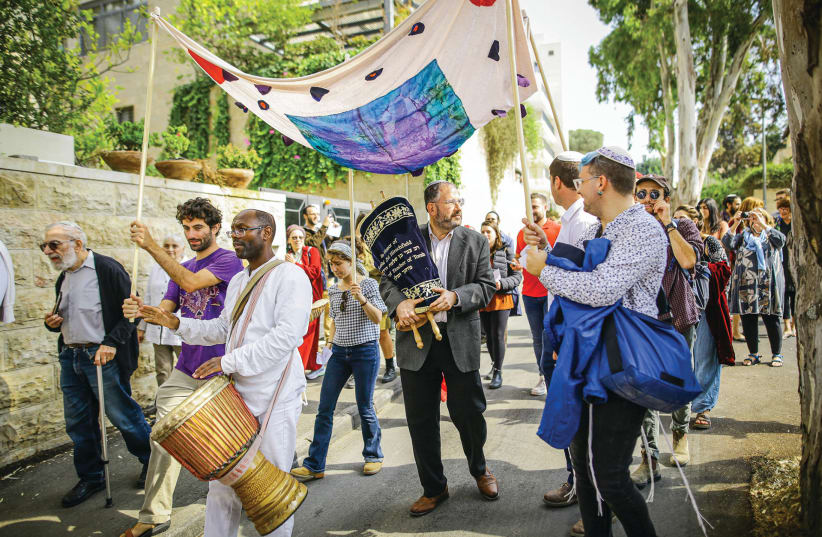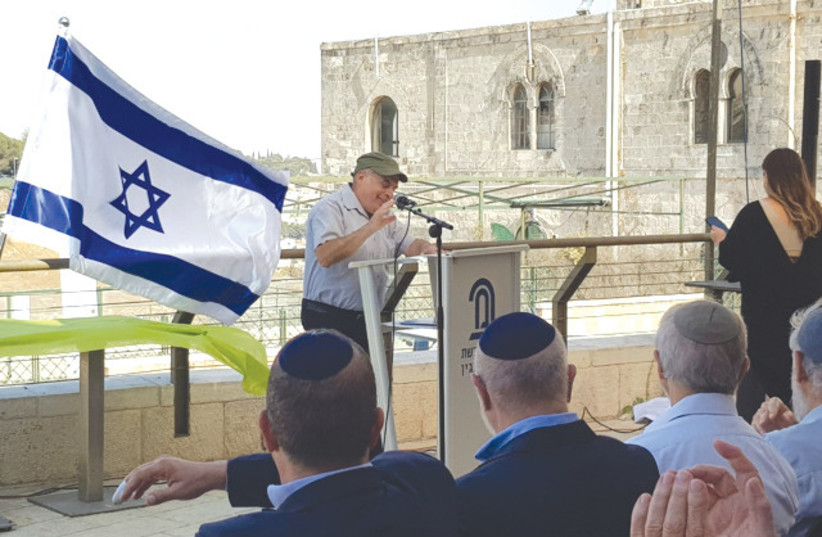One of my favorite rabbinic texts is the description found in the Mekhilta d’Rabbi Yishmael of the way in which Moses remembers to take the bones of Joseph with him as the children of Israel escape from Egypt. The midrash offers a vivid visual description of two aronot (arks) being carried side-by-side for 40 years as the children of Israel make their way to Israel. In one ark are the luchot habrit (the tablets of the Ten Commandments). In the other are Joseph’s bones.
As we celebrate a half-century of The Pardes Institute of Jewish Studies, how might we hold on to our past in a way that helps us to move forward? The image of the midrash runs counter to how we usually think about what it means to hold on to the past. Holding on to the past usually means being stuck in the past and not being able to move forward.
But for the children of Israel, holding the ark with Joseph’s bones is embracing the past. It helps them proceed and leads them to new realities. It allows them to be transformed into a nation and reach the promised land.
Like the bones of Joseph, Pardes’s rich history can be the basis for our bright future. Our year-long celebration is not just about the past, it is about a vision for Pardes’s future and a vision for the future of the Jewish people. Our past will be the impetus to move forward and embrace the opportunities of new realities. It will be the basis for our own transformation.
How might we hold on to the past in ways that lead us forward? First, we will need a clear sense of direction. It isn’t enough to know where we are. We also need to know where we are headed.
Pardes' three-year plan
OVER THE past year, Pardes has been developing a three-year strategic plan as a road map of where we want to be in 2025 and beyond. The past five decades of Jewish learning have been marked by openness, passion, Jewish knowledge and inclusivity. Our mission has never been more relevant and necessary to the long-term sustainability of the Jewish people than it is right now.
We are committed to serving a greater number of students in both our immersive and short-term programs. Through Pardes North America, we will work with partner organizations to increase Jewish knowledge among all lay leaders and to foster the “beit midrashification” of Jewish life, where study is the way that Jews connect to their tradition and to each other.
We will invest in our alumni, a community of 9,000+ people who are ready to deepen their Jewish lives and transform their communities. Pardes Torah will reach farther and wider in the marketplace of ideas. Like the children of Israel, our future is one in which we too come home, to a new world-class facility in Jerusalem. Beit Karen, will serve as a destination for locals and visitors alike.
Second, holding on to the past while moving forward means acknowledging how different our destination is from anything we’ve experienced thus far. For the Children of Israel, the contrast between Egypt and Israel could not have been more pronounced.
Egypt was fertile with an endless supply of water. Israel was dependent upon God’s blessings for water. In Egypt, we were dominated and exploited. In Israel, we are called to build a society where no one is exploited.
Jewish life in the Diaspora
Jewish life in the Diaspora has changed significantly since Pardes was founded, in 1972. Likewise, in 50 years, Jewish identity will be different from what it is today. There will be far more hybridity and fluidity in Jewish life. The denominational framework of the past 150 years will likely be transformed.
A numerical increase in both the haredi population and those who define themselves as Jews of no religion will widen the gulf within the Jewish community. The majority of Jews will live in Israel for the first time since the days of the Second Temple.
While our year-long immersive programs will certainly continue to be the signature offerings of Pardes, our commitment to learning will need to adapt and expand to these new realities. Our destination will be so different from our original place of departure. Acknowledging this enables us to move forward.
At Pardes, we carry our history with us. We grasp onto this ark and march toward the future with the roadmap we have carefully laid out. We are prepared for new and unfamiliar realities that lie ahead. And we will lend our strength to carry the past half-century with us as we venture toward our next 50 years.
The writer, a rabbi, is the president of The Pardes Institute of Jewish Studies.

